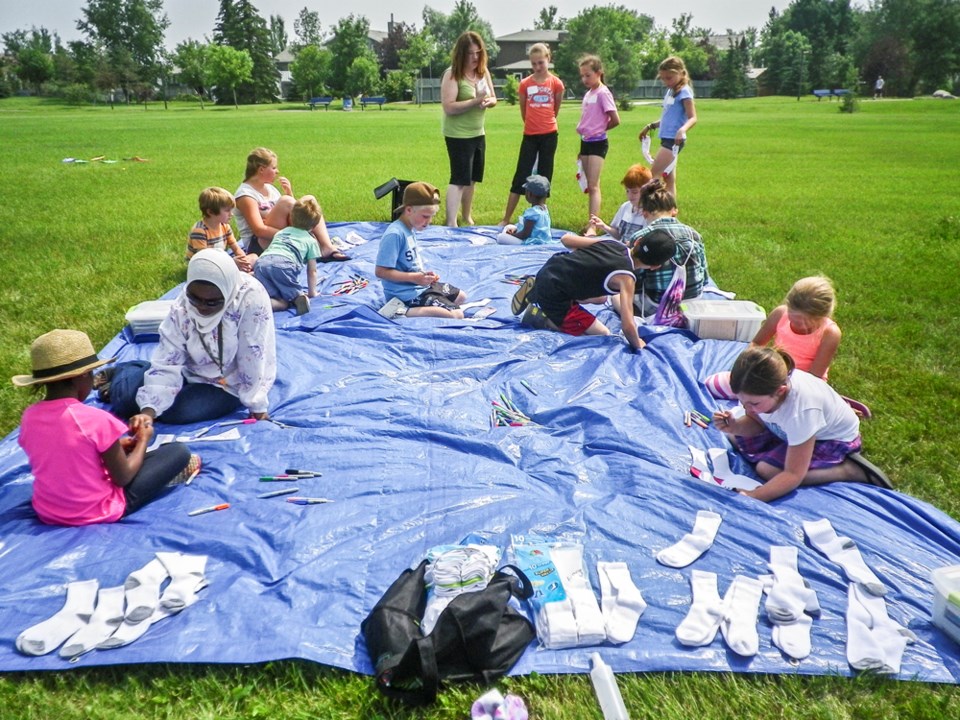The focus on literacy in the Energy City over the past year has been dedicated to getting the city’s youngest newcomers ready to communicate with their English-speaking peers.
The Estevan and Area Literacy Group’s annual general meeting was held on Nov. 24, and in the spotlight in particular was one of the group’s most recent program additions.
Aside from losing funding from Citizenship and Immigration Canada, which program co-ordinator Kathryn Roberton said was expected as the literacy group is a little outside of that department’s mandate, the year went smoothly and the programming continued to unfold mostly as usual.
“We haven’t really lost too much programming as a result,” she said.
The Summer English Fun program was developed to provide English language interaction for children during the summer break. Seventeen participants registered for the program, and Roberton said they had 12 who regularly attended throughout the summer.
“That was one thing that we knew was something that was going to be a concern over the, that some kids might not have a lot of interaction in English during the summer months,” said Roberton.
It’s important, she said, not just to give children who don’t speak English as their first language an opportunity to take part in programming about English but also to have them interacting in a typical way with other kids their own age. It gives them a real-world space to communicate with peers.
This new program included transportation for all participants, though Roberton said there are some changes they hope to implement as the program continues.
“We learned a number of important lessons that will help us to improve the program in the future,” she said. Chief among those lessons was that they need an indoor location. “We will also need to have a low teacher-student ratio, since many of the participants needed a lot of one-on-one assistance.”
Roberton was happy with the participation, but said greater help would make everything go smoother.
“Often we had to help each kid one at a time. I was thinking we’d be writing paragraphs, and just getting the kids writing sentences sometimes was a bit of a challenge,” she said, noting that was something she had to adapt to.
The age range didn’t make things easier, with participants as young as four and as old as 12. The children on opposite ends of the spectrum require very different attention and activities.
“We wanted to keep it fun. If it’s not fun, obviously, the kids aren’t going to want to come, so we tried to make it so they were learning but it wasn’t always obvious (to the kids). We tried to mix in language games along with things like parachute games and bean bags.”
They also did some science experiments, making batteries with lemons and other acidic fruits to light up a little bulb.
“I know some of the parents are making a huge effort to get their kids into English programs and give them something a little bit extra,” said Roberton about some of the families who come to the literacy group for the programming.
She noted in some cases these children don’t hear or use English very much in their own homes, so these extra-curricular activities are vital to ensure they can keep with their native English speaking peers in the classroom.
“But it is still very important to maintain the home language as well,” Roberton added. “It’s one of those things that we tend to forget, but if you think about how it is when you’re communicating with children, the parents and the kids need to have a language that has those core concepts in it that they can communicate in. If the kid doesn’t have the core concepts in their home language and hasn’t learned them in English yet, it really puts them at a disadvantage.”
She tells parents it’s vital to practice their home language with their kids, which helps with their language development in English. It’s also great later in life to be bilingual when they start looking for jobs. Even if they don’t speak English and French, but English and something else, that’s a leg up in any career that involves some sort of international co-operation.
“English and any other language would be an asset.”
An important part of the summer program is the aspect of socialization for the children. Roberton said when she sees kids running around together in the community, she sees them congregating in their cultural groups.
“I don’t see as much interaction between them outside of the school, so that’s another one of the benefits of this, that it brings together some of these kids and helps them build interactions with each other.”
She said the literacy group is also starting a pre-school program. Roberton was contacted by the Holy Family Roman Catholic School Division, alerting her to the fact they had 30 pre-schoolers apply for positions and only 16 placements. At the moment they are only able to run one session per week on an eight-week rotation. Still, Roberton said it’s a necessity to prepare young children who speak very little English to learn some communication tools prior to the start of their school career.
“I always think of the kids and think how scary it was for me to go into kindergarten and try to imagine what it would be like going in and not being able to speak to the teacher or the kids, and how much stress it is for the other kids and for the teachers,” said Roberton.




